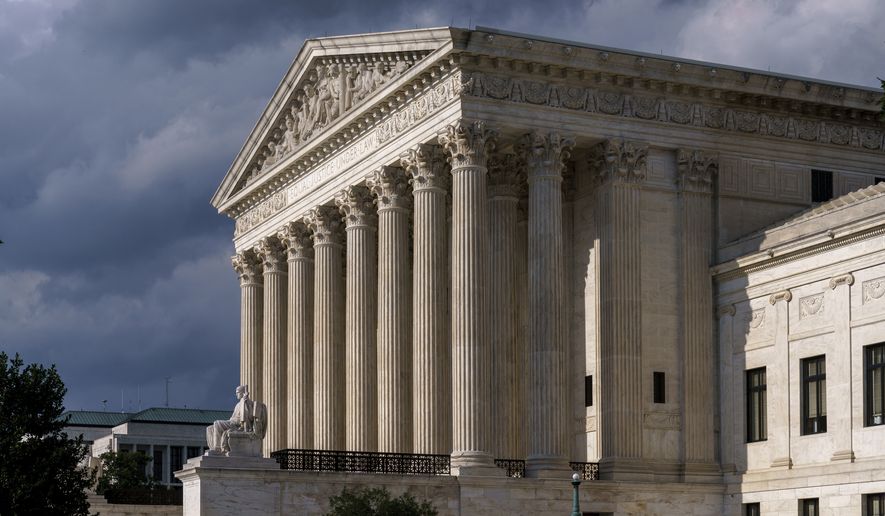The Senate Judiciary Committee recently passed two bills to get cameras into federal courtrooms — including the Supreme Court.
The move on Thursday marked the first time legislation mandating cameras in the courts made it out of the committee in more than a decade, according to Fix the Court, a nonprofit organization aimed at bringing transparency to the federal judiciary.
It’s unclear if either piece of legislation will see a full vote on the chamber floor.
A spokesperson for Senate Majority Leader Charles E. Schumer, New York Democrat, did not return a request for comment about where he stands on the issue.
The Cameras in the Courtroom Act of 2021 has bipartisan support and it would require the Supreme Court to provide television broadcast on all of its hearings unless a majority of the justices vote against doing so in favor of due process. It passed the committee by a 15-7 vote.
The other bill, the Sunshine in the Courtroom Act of 2021, also shares bipartisan support and it would require media coverage for all federal court proceedings. It passed the committee by a 16-6 vote.
The Supreme Court has been providing live audio of oral arguments during the coronavirus pandemic.
Prior to the pandemic, though, the audio of proceedings was not available until the end of the week. But the court would provide written transcripts of oral arguments shortly after hearings concluded.
The high court has never allowed cameras into its courtroom proceedings.
The justices have shared mixed views on the issue.
Justice Samuel A. Alito Jr. and Justice Elena Kagan appeared before lawmakers in 2019 and suggested that cameras could change the tone of the hearings.
But during her confirmation hearing last year, Justice Amy Coney Barrett suggested she was open to television broadcasts.
“I would certainly keep an open mind about allowing cameras in the Supreme Court,” she said at the time.
Ahead of Thursday’s Senate Judiciary Committee hearing where both bills passed with bipartisan support, Roslynn R. Mauskopf, secretary of the Judiciary Conference of the United States, expressed opposition to broadcasting federal court hearings.
“The Judicial Conference has consistently expressed the view that camera coverage can do irreparable harm to a citizen’s right to a fair and impartial trial. The intimidating effect of cameras on litigants, witnesses, and jurors has a profoundly negative impact on the trial process,” she wrote in a letter to Senate Judiciary Chairman Richard J. Durbin, Illinois Democrat.
Mr. Durbin, though, supported both bills.
The committee’s top Republican, Sen. Charles E. Grassley, also supported both pieces of legislation.
“I have been introducing legislation to open up our courtrooms to the American people for over 25 years now. I think if the American people can see how justice is done, they’ll have a better appreciation for it,” the Iowa Republican said during last week’s hearing.
• Alex Swoyer can be reached at aswoyer@washingtontimes.com.




Please read our comment policy before commenting.